With the sunset, the biological mechanisms of the organism slow down their work and prepare the body for sleep. Hence the rule that the use of food after sunset disturbs the preparation of the resting body and thus damages the health. Okay, you have refused the late dinner, but you feel hunger and cannot sleep hungry?
In most cases, this sensation causes people to throw themselves away from the temptation in the refrigerator without any measure.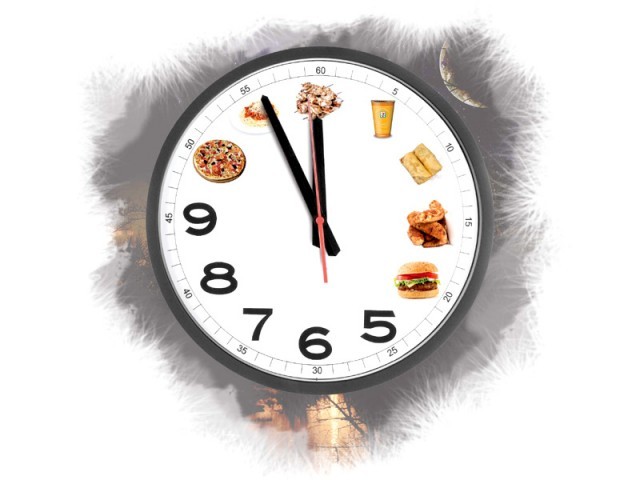
What to eat?
For lunch in the second half of the day, milk, meat, curd, eggs, cheese, raw nuts are suitable. For dinner, stop choosing meat such as veal, beef, chicken, turkey, rabbit. They contain little fat, and their best company is vegetables: cucumbers, tomatoes, peppers, lettuce.
It will not hurt drinking a glass or two wines, with the understanding that you are aware that the body will first deal with the processing of alcohol and leave "for the rest" the absorption of the other substances.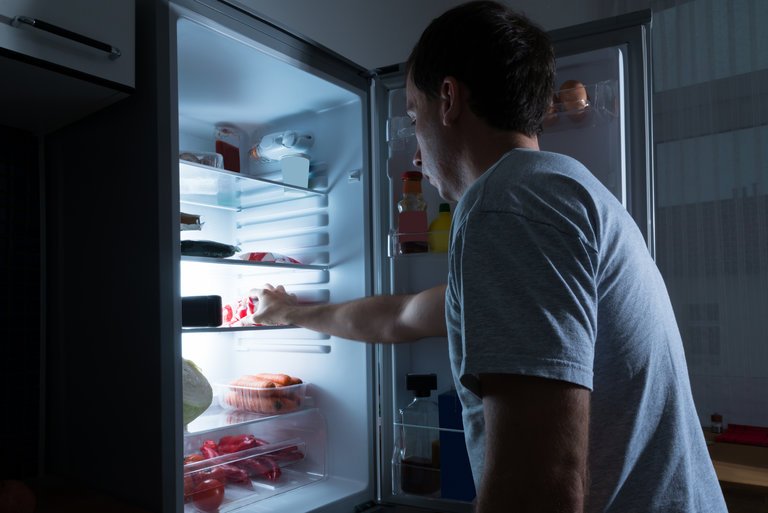
Nutritionists also advise for dinner to include products rich in cellulose that help to burn calories: tomatoes, carrots, eggplants, beets, apples, strawberries, watermelons, oranges, apricots. All of these fruits and vegetables will not allow extra pounds to accumulate, but supporters of low-carbohydrate diets may exclude the "fruitful" portion of their evening menu.
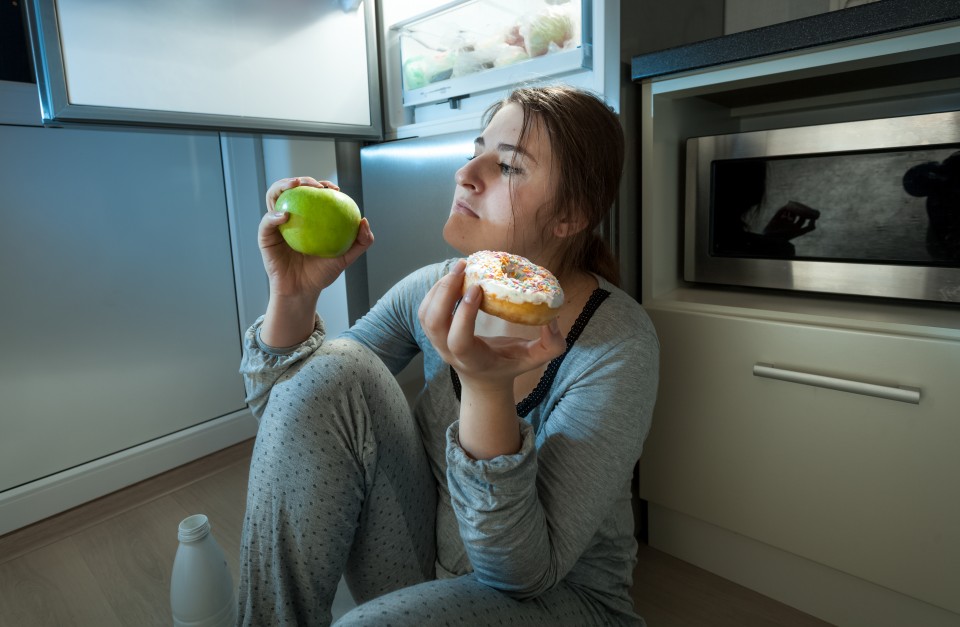
The Loss of Late Calories
25% of the inhabitants of large cities work late or night shift, and this inevitably implies late feeding. Nutritionists are of the opinion that this fact alone is not a generator of health problems unless you overeat, you do not drastically exceed your daily norms of calories and last but not least - if this is not your only meal of the day! Sometimes people resort to their favorite food in the evening, believing that after a hard day they deserve to enjoy themselves. Ice cream, cake, chocolate, beer with chips . A massive worldwide study has proven that a generous late supper not only leads to obesity but also causes other illnesses. Scientists have found that this also has an adverse effect on the endocrine system.
After each meal during the day, the pancreas produces the insulin hormone. It helps to decompose carbohydrates in order to get energy, and fat is kept as a backup source. At night the pituitary separates the so-called growth hormone involved in fat breakdown. However, if there is plenty of food before sleep, the pancreas secretes insulin, while the pituitary gland signals that there is food in the body .
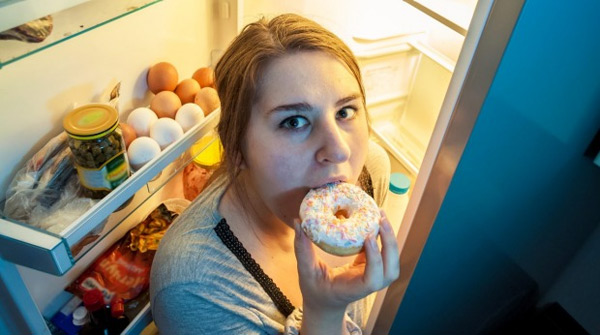
The "night" insulin?
This is an endocrine disruption! Excessive insulin production at night is one of the causes of obesity, atherosclerosis, osteoporosis, hypertension, pancreatitis, gallstones, cholecystitis. It provokes sleep disturbance, and chronic sleeplessness is even more helpful for obesity - a vicious circle turns around.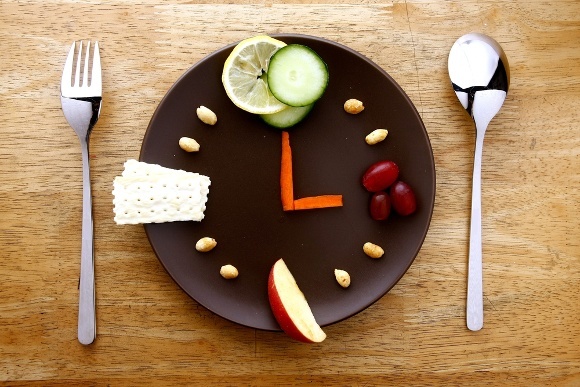
Controversial experiments?
"Taking large amounts of carbohydrates in the evening dramatically increases insulin release, and subsequent metabolic processes lead to their transformation and storage as fat."
The scientists decided to check whether this was really the case, and the results of their studies proved to be quite controversial.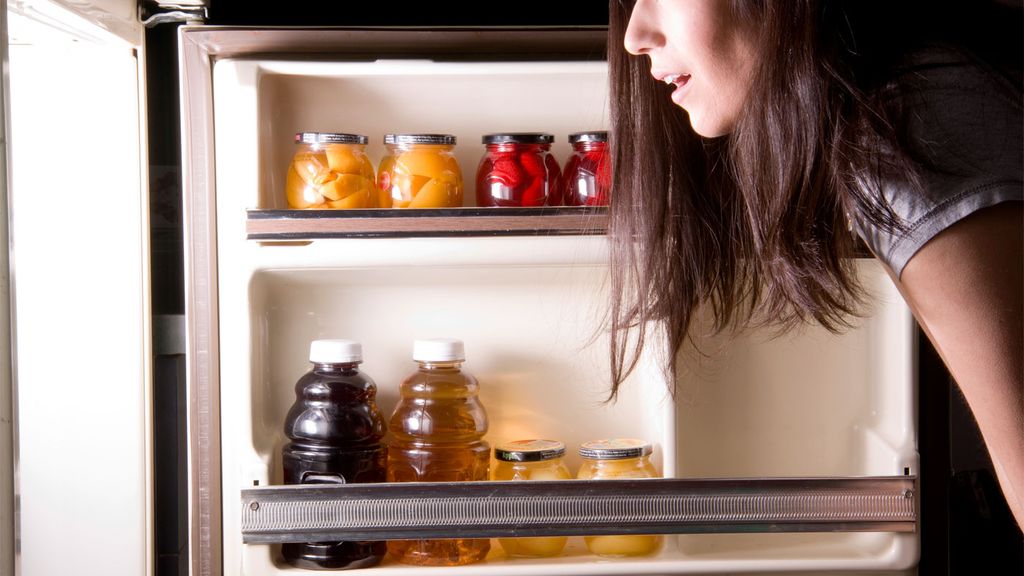
American specialists included over 7,000 people in a large-scale study over a ten-year period, after which it was found that the amount of food consumed as a late dinner was not relevant for weight gain. In another experiment with 1,800 women, there was no relationship between weight gain and diet after 17 hours.
The result of the studies means we should not try to lose weight by skipping dinner and always keep track of the total amount of calories of the day. Further research into the dependence between late eating, weight and calorie intake has shown that the most likely reason for gaining weight is how much we dine, but how many calories we have taken. Will you agree or not, decide for yourself ...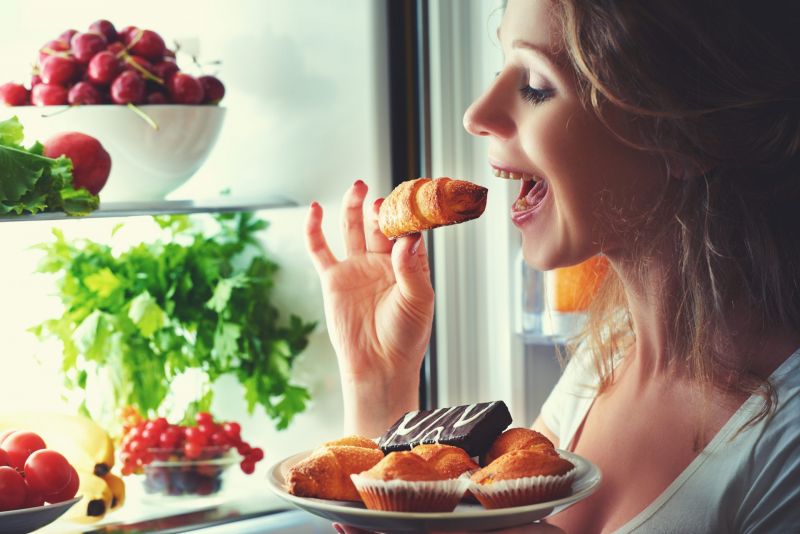
What should we do to not overeat at night?
- First of all, during the day, eat a few times, in small portions.
- Breakfast must be complete.
- It is very important and what you eat during the day. Strive for vegetables, fruits, nuts, seeds, whole grain bread, rice. Animal products are preferably oily sea fish, meat, eggs, dairy products.
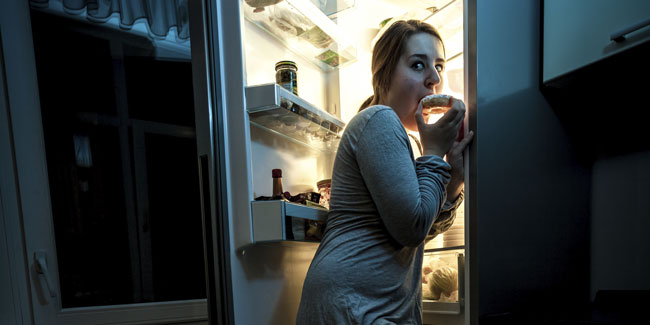
- Coffee is useful as long as you do not overdo it. It enhances the work of the brain, eliminates stress and even protects against overeating!
- Natural chocolate enhances mood and prevents gluttonous infections because it contains a lot of cocoa.
- Do not overeat - the feeling of satiety occurs within 30 minutes of eating!
The main thing, however, is to mentally adjust to an early dinner. Only this way in the morning you will wake up with a good appetite and will have a full breakfast. As for the inability to sleep on a hungry stomach, it's just a habit.
Do not rush abruptly to change your mode if you are used to eating before sleeping. First, try to do this one hour before bed, then gradually increase this interval. So in about a month, you will enter "in rhythm".







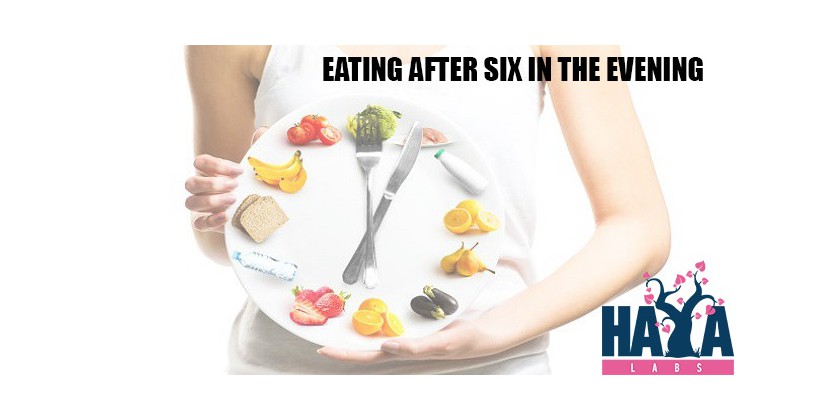
Deja tu consulta/Leave your query Cancel Reply